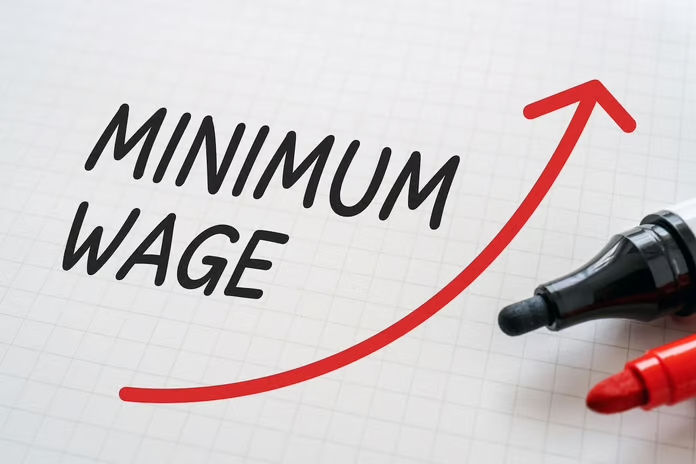Alright. Let’s talk about the rising minimum wage and its profound, devastating implications for the cost of living in California.
I recently tried to enroll my child in a summer camp through the Los Angeles Department of Recreation and Parks, and guess what? We were met with fewer spots and a whopping 33% price hike. Why? The department is struggling to find enough counselors who are willing to work for $18 an hour.
Sure, it’s more than the city’s current minimum wage, but here’s the real kicker: In April, the statewide minimum wage for fast-food workers is going to hit $20 an hour. If that wasn’t bad enough, we can bet that these kinds of wage increases won’t be limited to fast-food workers, and L.A. won’t stop at just $20 an hour.
Of course, recent wage increases throughout California haven’t been confined to seasonal temporary jobs like summer camps. Hospitals across the state are also being forced to raise their wages for their lowest-wage employees to an astronomical $25 an hour. Great news for the employees, right? Well, not quite. The reality is that doing so will set off a domino effect of rising costs for patients and, ultimately, a mass worker exodus from Los Angeles and California.
Consider the impending $20 hourly minimum wage for fast-food workers in the Golden State, set to take effect in April. The implications are dire, especially in cities like Los Angeles, where the cost of living is already skyrocketing.
As we witness these wage hikes, everyone – from the business community and government officials to affected employees themselves – must recognize that increased labor costs will inevitably be passed down the supply chain, affecting everything from goods and services to the overall cost of living. And no one is prepared to pay $15 for a Big Mac.
Now, if a worker can pull in $52,000 a year in cities like Turlock, where one-bedroom apartments are being rented out for a little over $1,000 a month, why should anyone stick around in L.A.? Especially when our elected officials are turning the screws on landlords and developers, making prices spiral even more out of control.
So, what’s the bottom line? Expect changes. Big ones. Although unions and social justice warriors might throw a fit, astronomical labor costs will force countless businesses to cut their staff and shift to automation, because doing so will be the difference between surviving and shutting their doors.
This alarming scenario raises important questions about the sustainability of California’s economic model. While the state’s $16 hourly minimum wage might sound like a leap forward for economic justice to some, it falls short when coupled with the increased costs that are the result. The state’s Legislative Analyst’s Office even crunched the numbers for us, and, surprise, surprise, they’re not adding up.
Wage hikes will cause other changes
Also, in case you missed it, a recent report by the Hoover Institution revealed that hundreds of businesses decided to wave goodbye to California between 2018 and 2022. And that doesn’t even include the businesses that just closed their doors. Why? High rent, high taxes and high employee living costs, not to mention enough red tape to strangle plenty of business owners. That doesn’t quite sound like a love letter to hard-working Californians, does it?
As the state grapples with many economic challenges, it is paramount that we balance pursuits for fair wages with economic sustainability; otherwise, our state will be ravaged by increased costs and job losses that disproportionately harm small businesses and underserved communities. So, policymakers need to engage in meaningful dialogue with stakeholders to ensure fair compensation that doesn’t damage California’s prosperity.
Although higher wages are a noble idea, let’s not kid ourselves: There’s no such thing as a free lunch. As the minimum wage climbs, costs do, too, and someone’s going to be picking up the tab. So, before throwing a party when everyday workers start raking in $20 or more an hour, let’s take a step back to make sure that our leaders aren’t marching the state into financial ruin. California’s economic future is on the line, and it’s about time that we put a stop to counterproductive, pie-in-the-sky proposals.
Stuart Waldman is president of the Valley Industry and Commerce Association, a business advocacy organization based in Van Nuys that represents employers in the San Fernando Valley area at the local, state and federal levels of government.
